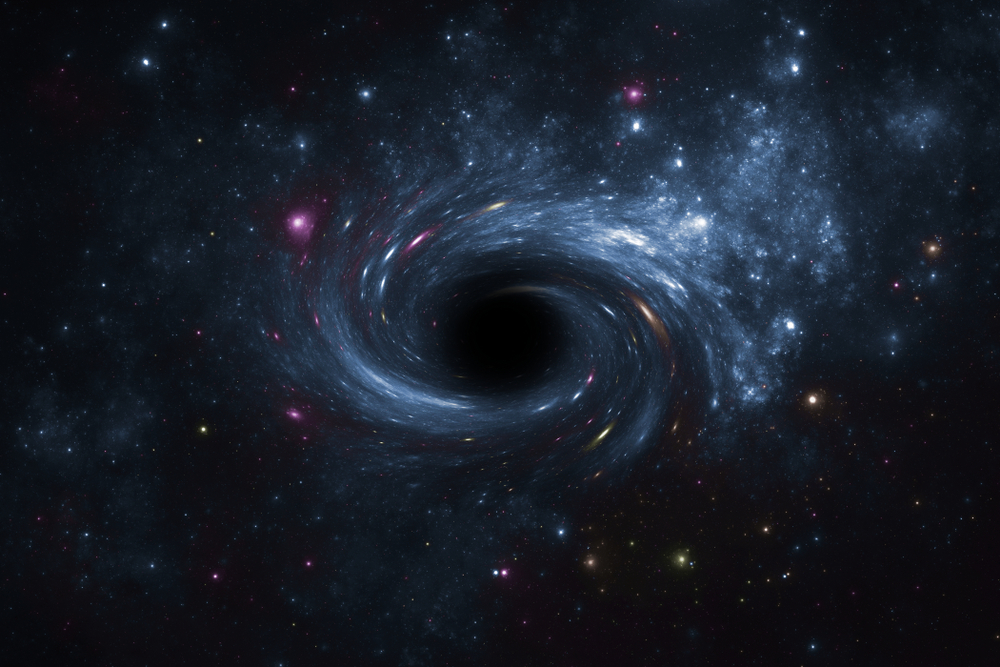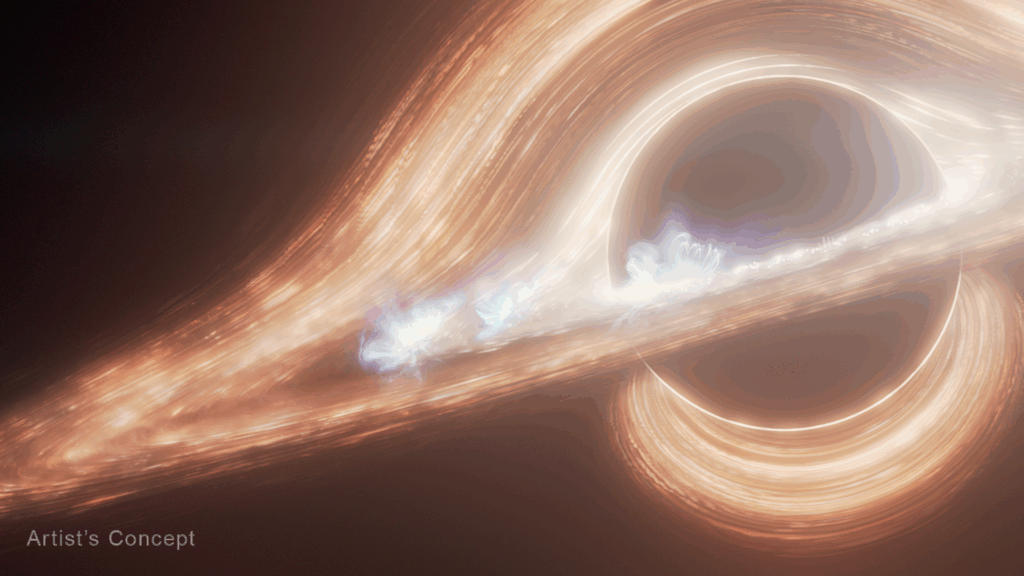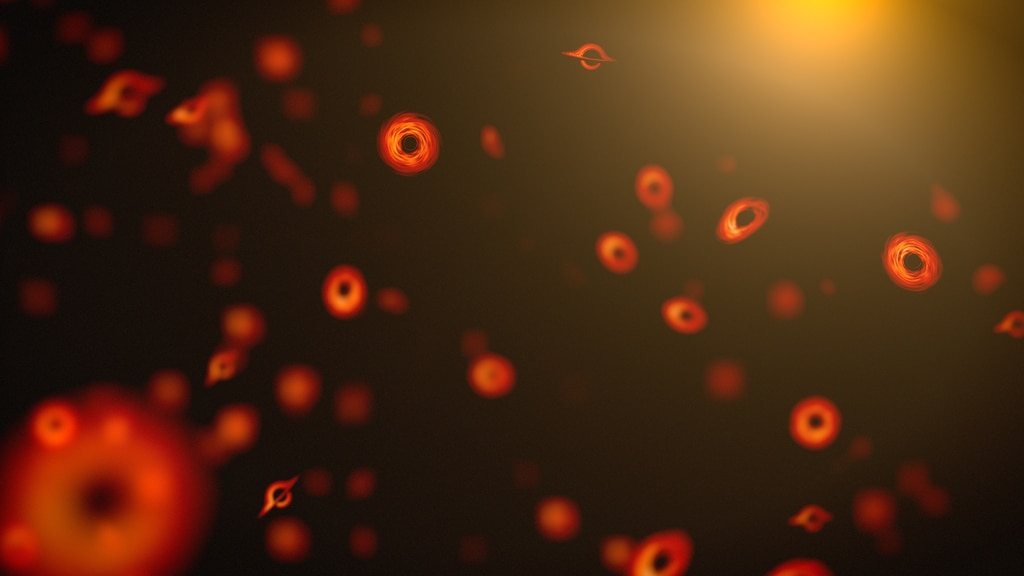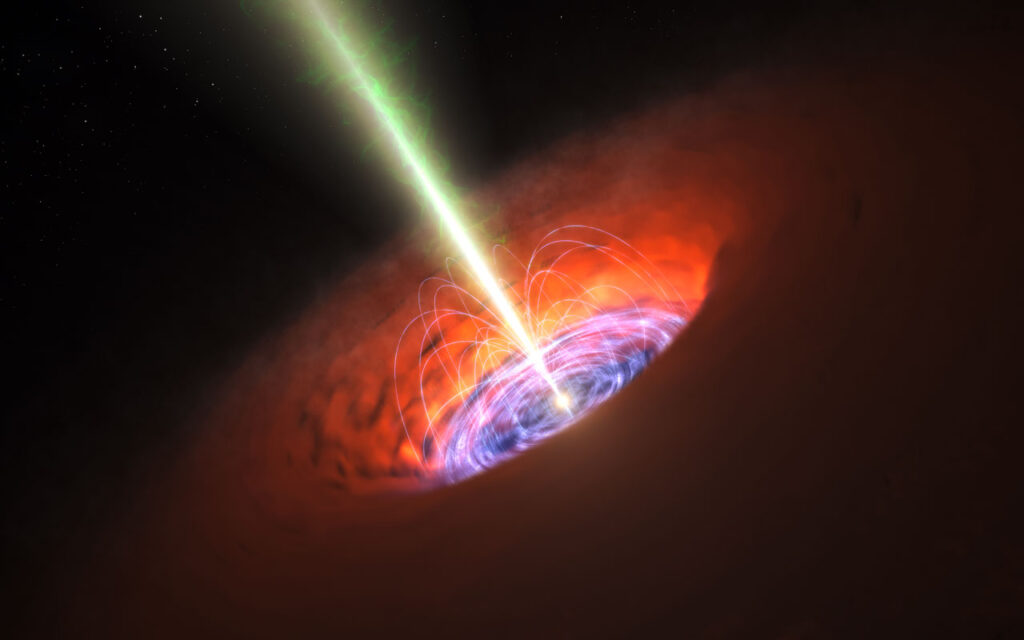Experts Say There’s a 90% Chance of Observing a Black Hole Explosion by 2035

If you thought black holes were already mysterious enough, things just became even stranger. For the first time in history, scientists are predicting that within the next decade there is a 90% chance we will actually observe a black hole explosion, a phenomenon once believed to exist only in theory. It sounds like the stuff of science fiction, but experts insist the universe may soon offer us front-row seats to one of the most powerful events imaginable.
This is more than a distant cosmic headline. It represents the culmination of decades of theory and technological progress. Black holes have long been treated as silent consumers of matter, but now we may be on the verge of watching one collapse in on itself and release a blinding outburst of energy. Imagine billions of years of cosmic history compressed into a single, spectacular instant. That is the vision astronomers are preparing for.
To put it in perspective, the first detection of gravitational waves in 2015 was hailed as one of the most groundbreaking discoveries of our time, confirming Einstein’s century-old prediction. A black hole explosion could rival that feat, offering proof of Hawking’s theories and a glimpse into cosmic conditions never seen before—turning abstract science into a phenomenon the world could witness in real time.

Illustration: NASA, ESA, CSA, Ralf Crawford (STScI)
A Flash at the End of a Black Hole’s Life
Most people picture black holes as eternal prisons from which nothing can escape. Yet in the 1970s, Stephen Hawking revolutionized this view by showing that black holes are not everlasting. Through a process known as Hawking radiation, they can slowly lose energy and evaporate, like a cosmic ember that flickers out over time.
For the largest black holes in the universe, this process takes unimaginably long stretches of time, far greater than the age of the cosmos itself. But for much smaller black holes, perhaps those forged in the first split-seconds after the Big Bang, evaporation could already be reaching its final stage today. As these primordial black holes lose their final scraps of mass, they are expected to unleash a catastrophic burst of energy unlike anything we have ever witnessed. This eruption would outshine every star in its host galaxy combined, radiating across multiple wavelengths and releasing a torrent of exotic particles that might help scientists probe the very foundations of physics.
The spectacle would not only dazzle astronomers but also serve as a window into mysteries such as the behavior of quantum fields near singularities, the role of black holes in shaping cosmic evolution, and the elusive identity of dark matter. Theorists even suggest that studying such explosions could bridge gaps between Einstein’s relativity and quantum mechanics, two pillars of science that have resisted unification for over a century.
Although this dramatic finale has been predicted for decades, no human eyes have ever seen it unfold. That is why today’s forecasts are so electrifying: for the first time, scientific models, advanced telescopes, and cosmic timing are converging to give humanity a chance to witness a black hole’s death throes — a genuine cosmic firework that could change the way we understand reality itself.
How We Know the Odds Are So High
According to recent studies published in Physical Review Letters , astronomers calculate that there is a 90% chance of observing a black hole explosion by the mid-2030s. This confidence rests on several key factors.
First, the population of primordial black holes may be larger than once assumed. These ancient relics of the Big Bang, scattered throughout the cosmos, could now be nearing the end of their lifespans. The timing is perfect: if they exist, some of them should be dying right around now.
Second, technology has finally caught up. A generation ago, even the brightest cosmic bursts could have been missed. Today, telescopes are far more sensitive. The soon-to-open Vera Rubin Observatory, along with powerful gamma-ray detectors and networks of observatories worldwide, ensures that any such event would not slip past unnoticed. Scientists have created rapid-alert systems to lock onto the first sign of an unusual burst.
Third, the mathematics is compelling. When researchers combine the age of the universe, the expected number of tiny black holes, and the physics of Hawking radiation, the probability becomes overwhelming. We are entering a rare window in cosmic history when theory and observation may finally collide.

Credit: NASA’s Goddard Space Flight Center
The Spectacle We Might See
If such an explosion occurs, astronomers expect it to unfold as a dazzling, short-lived flash of high-energy radiation. The opening act would be a searing blast of gamma rays, pouring across the sky with unimaginable power. That initial flash would likely be followed by a slowly fading afterglow detectable in X-ray, visible light, and even radio waves.
Astronomers compare it to a cosmic firework display, though one utterly beyond Earthly comparison. Telescopes across the world would scramble to lock onto the source, sending back streams of data to be studied for years. And despite the sheer violence of the event, Earth would be entirely safe. These black hole deaths are only hazardous at close range, and scientists say the odds of one happening in our galactic neighborhood are essentially zero.
Beyond the spectacle, such an observation would also create a shared moment for humanity. Just as millions once gathered around televisions to watch the first steps on the Moon, people across the globe could unite in awe of the universe revealing one of its deepest secrets. Schools, observatories, and science centers would likely hold events, media outlets would broadcast real-time updates, and everyday people would pause to marvel at the reality of what had once seemed like a distant theory. It would not only be a triumph of astronomy but also a cultural milestone, reminding us that we are all participants in a story far larger than ourselves.
The Scientific Stakes Could Not Be Higher
The detection of a black hole explosion would be nothing short of revolutionary. First and foremost, it would confirm Hawking’s prediction of radiation and evaporation, providing the first direct evidence of one of the most profound ideas in modern physics. Such confirmation would bridge long-standing gaps between quantum mechanics and relativity.
But the potential discoveries go even further. The energy released would create a natural cosmic laboratory, allowing physicists to test theories in conditions that cannot be replicated on Earth. It could shed light on how information behaves inside black holes, whether it is destroyed or preserved, and what that means for the fabric of reality itself.
If multiple explosions were detected over time, it would suggest that primordial black holes were common in the early universe. That would also tie into one of science’s biggest mysteries: dark matter. Some scientists believe these ancient black holes might account for part of the missing mass that shapes galaxies and governs the universe’s structure. In essence, one observation could reset the boundaries of human knowledge.

Credit: ESO/L. Calçada
Preparing for the Cosmic Countdown
The idea of waiting a decade for such a rare event may feel distant, but in astronomical terms it is just around the corner. Astronomers across the globe are preparing for the possibility, coordinating resources and refining instruments in anticipation. Sophisticated detection networks are being put in place so that no telescope misses a potential flash, and entire teams are working on rapid-response strategies to capture every second of data. The international collaboration is immense, uniting observatories from different continents and wavelengths, ensuring that when the moment comes it will be documented with unprecedented precision and depth.
For the rest of us, this anticipation is both humbling and inspiring. It is a reminder that the universe is alive with activity, even if it unfolds on timescales far beyond our daily lives. Somewhere in the vast expanse, a black hole may already be approaching its spectacular finale, poised to light up the cosmos in a way no human eyes have ever seen.
When that moment arrives, it will not only be an astronomical discovery but also a profound human experience. It will mark the culmination of decades of theoretical work, the triumph of global cooperation, and the proof that even in our tiny corner of the cosmos we are capable of grasping truths that stretch to the very edges of time and space. And when the skies flare with the death of a black hole, humanity will share in that cosmic revelation together, closing one chapter of mystery while opening countless more. In that instant, the countdown will have ended, and a new era of exploration will have begun.
Featured Image Credit: Martin Capek | Shutterstock
Loading...

